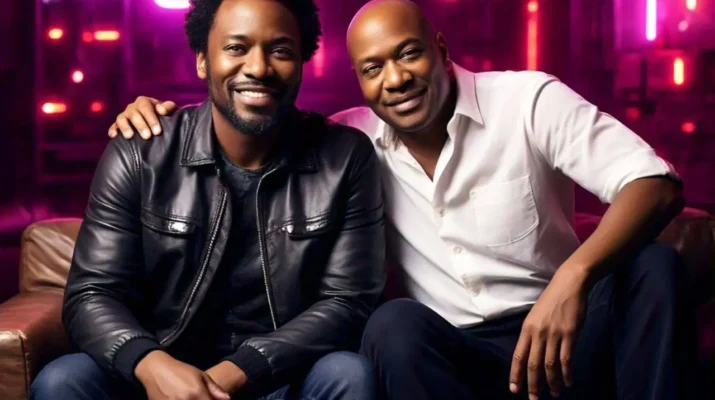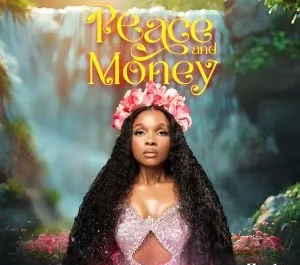What’s the difference between a producer and an executive producer? We’ve got answers for you. ![Producer vs. Executive Producer: What’s the real difference? [Meta AI]](https://www.pulse.ng/_next/image?url=https%3A%2F%2Fimage.api.sportal365.com%2Fprocess%2F%2Fsmp-images-production%2Fpulse.ng%2F07012025%2Fed225acb-69fc-4574-8883-aa261e1a289e.jpg&w=3840&q=75) Producer vs. Executive Producer: What’s the real difference? [Meta AI]
Producer vs. Executive Producer: What’s the real difference? [Meta AI]
Absolutely, you’re right! The roles of producer and executive producer are often confusing, but they play distinct and crucial parts in the filmmaking process. Let’s break it down:
The Producer: The Captain of the Ship
The producer is the individual who takes the hands-on role in managing the day-to-day operations of a film or TV show. Think of the producer as the one who ensures the ship stays afloat, on schedule, and within budget. They are involved from the moment a project is conceived until the final credits roll. Some of their key responsibilities include:
- Development: The producer helps shape the vision of the project, often securing the script, attaching the director, and even finding the right talent. This is where the project begins to take form.
- Financing and Budgeting: Producers manage the budget, figuring out where the money is coming from (whether through studios, investors, or other sources) and ensuring the project stays within financial constraints. They allocate funds across various departments, from actors to set design.
- Hiring Crew and Talent: Producers are responsible for hiring key personnel, such as the director, screenwriter, cinematographer, and other essential crew members. They help shape the creative team to bring the film to life.
- Scheduling: They create the production timeline, ensuring that the project runs on schedule and that everything from rehearsals to post-production fits within the timeframe.
- Problem-Solving: During production, issues will inevitably arise. Producers are often the first to step in and find solutions to logistical, financial, or creative challenges.
- Post-Production: After filming, the producer ensures that the film gets edited, marketed, and distributed properly, maintaining the project’s integrity and ensuring a successful release.
In short, producers are involved in the “nitty-gritty” of filmmaking and handle the practical aspects of getting the project from start to finish.
The Executive Producer: The Visionary Investor
The executive producer is usually more removed from the day-to-day operation but still has a significant influence over the project. Their role is often less about managing production and more about overseeing the project at a high level. Their duties can vary depending on the specific project, but here’s a general breakdown:
- Financing: One of the primary responsibilities of an executive producer is securing financing for the project. They may bring in investors, negotiate distribution deals, or help secure funding from a studio or production company.
- Big Picture Oversight: The executive producer keeps an eye on the overall vision for the project, making sure it aligns with the broader goals of the studio, network, or production company. They are responsible for ensuring that the project meets its target audience, and financial, and creative objectives.
- Networking and Deals: Executive producers often have the connections to ensure a project gets made. They may bring in key players (such as famous talent, directors, or financiers) or broker major distribution deals that ensure the film or series finds an audience.
- Mentorship or Guidance: In some cases, an executive producer provides mentorship to the creative team, offering high-level guidance without necessarily being hands-on with day-to-day operations. They are there to offer advice, make big-picture decisions, or act as a sounding board for the producer and director.
- Credibility and Branding: Sometimes, an executive producer’s role is to lend their name to a project to give it credibility or attract attention. This is often the case with high-profile figures like famous actors or industry veterans who don’t directly contribute to the production but are attached for their influence.
- Creative Input: While less involved in the hands-on execution, some executive producers—especially in the case of established directors, writers, or celebrities—may play a more direct role in the creative aspects of a project, offering feedback or shaping the direction.
Key Differences Between Producer and Executive Producer
- Scope of Work: The producer handles the day-to-day operations, while the executive producer oversees high-level financial and business decisions.
- Involvement: The producer is actively engaged in the creative and logistical process, while the executive producer’s involvement may be more limited to financial and strategic decisions.
- Power and Influence: Producers tend to have more control over the creative aspects of the project, whereas executive producers typically influence the project from a business or strategic standpoint.
- Financing: While both roles can be involved in financing, the executive producer often brings in the major funds or investors, while the producer ensures the budget is managed effectively.
Why Are Both Roles Crucial?
Both roles are essential in filmmaking because they serve different needs within the project. The producer ensures that the project is made efficiently and creatively, while the executive producer provides the necessary funding, strategic direction, and industry connections to ensure the project gets made in the first place. In some cases, a successful film or TV show may have several executive producers who play varying roles, while only one or a handful of producers are responsible for the day-to-day tasks.
Think of it like this: the producer is the one who ensures the ship sails smoothly, while the executive producer is the one who makes sure the ship is well-funded, equipped, and has a strong direction for its voyage. Both are necessary for the film to reach its destination—an audience.
Conclusion
If you ever find yourself watching the credits and wondering about these titles, now you know that producers are the ones “on the ground,” ensuring everything runs smoothly, while executive producers are more likely to be overseeing the project from a strategic, high-level perspective. Both roles are essential to the filmmaking process, and the successful collaboration between the two can mean the difference between a movie or show sinking or sailing to success.






